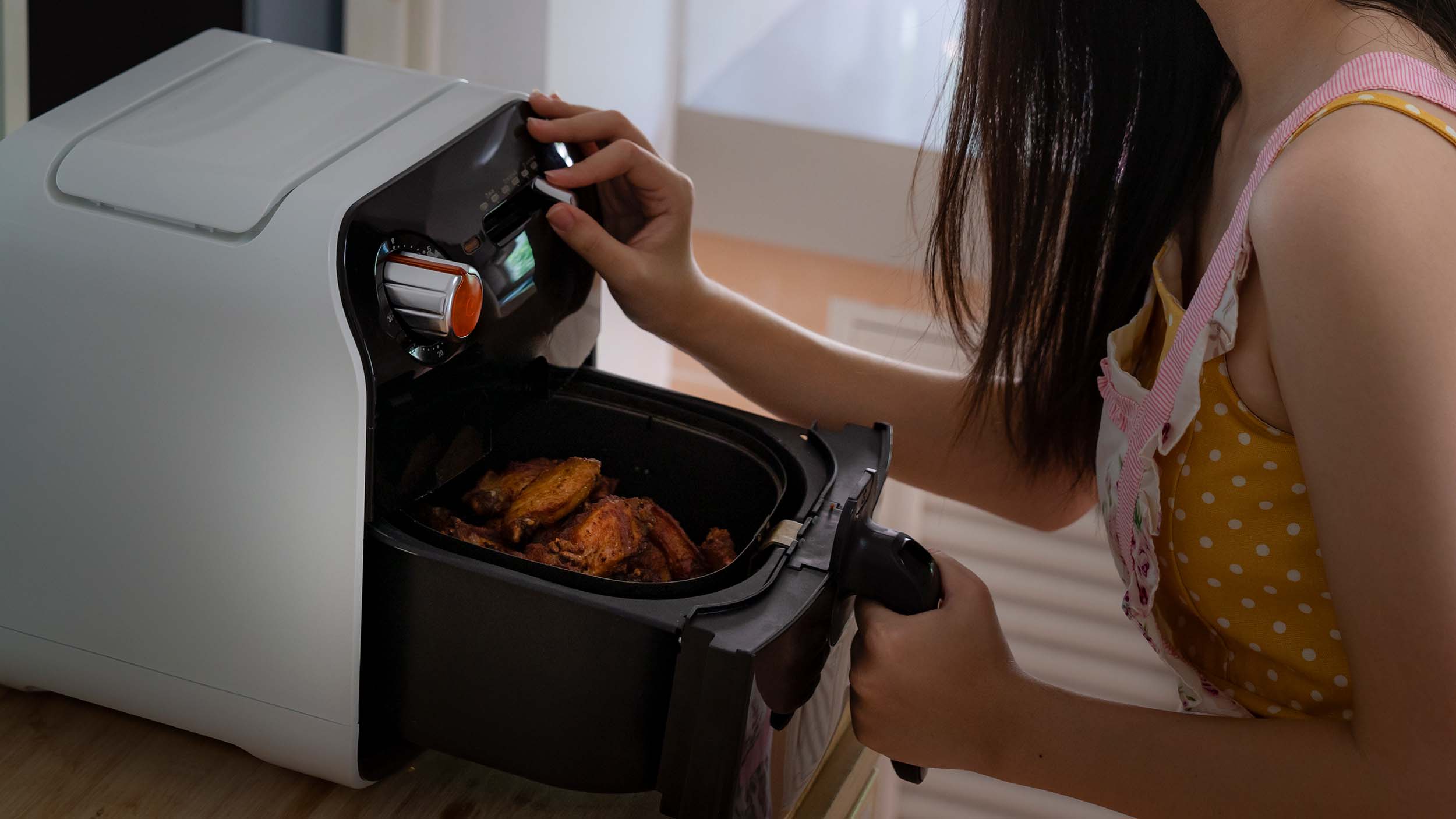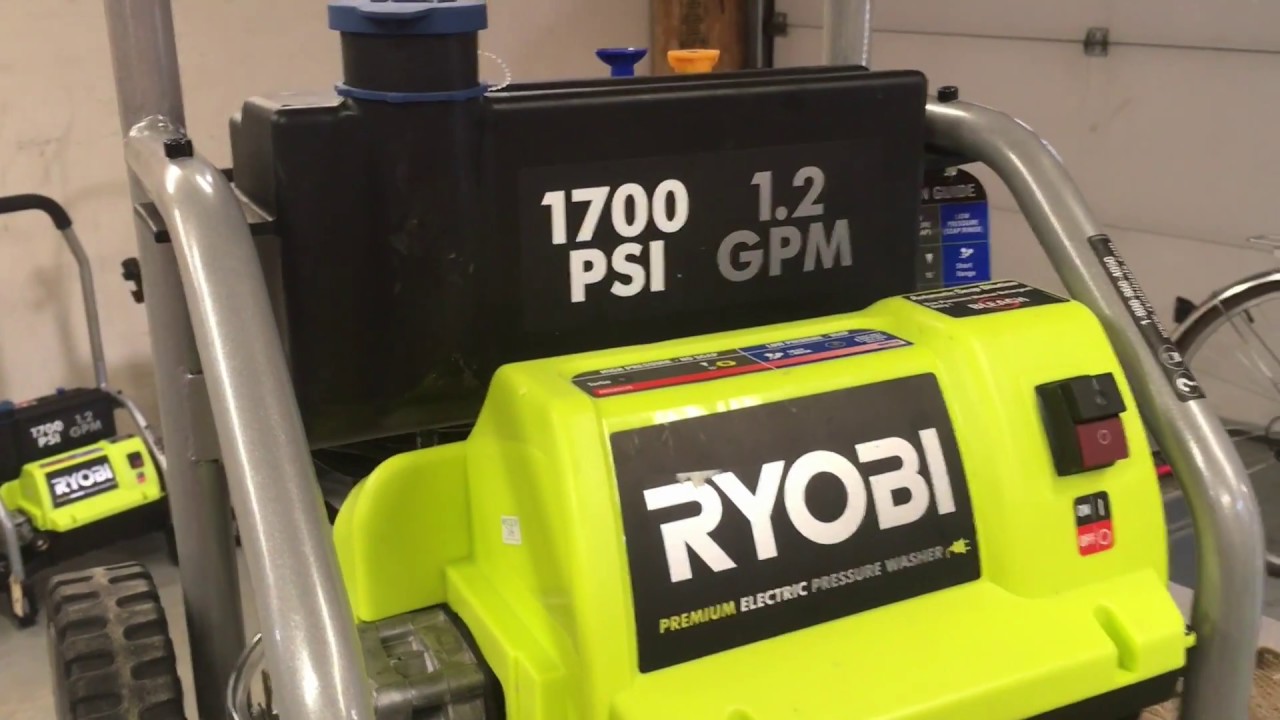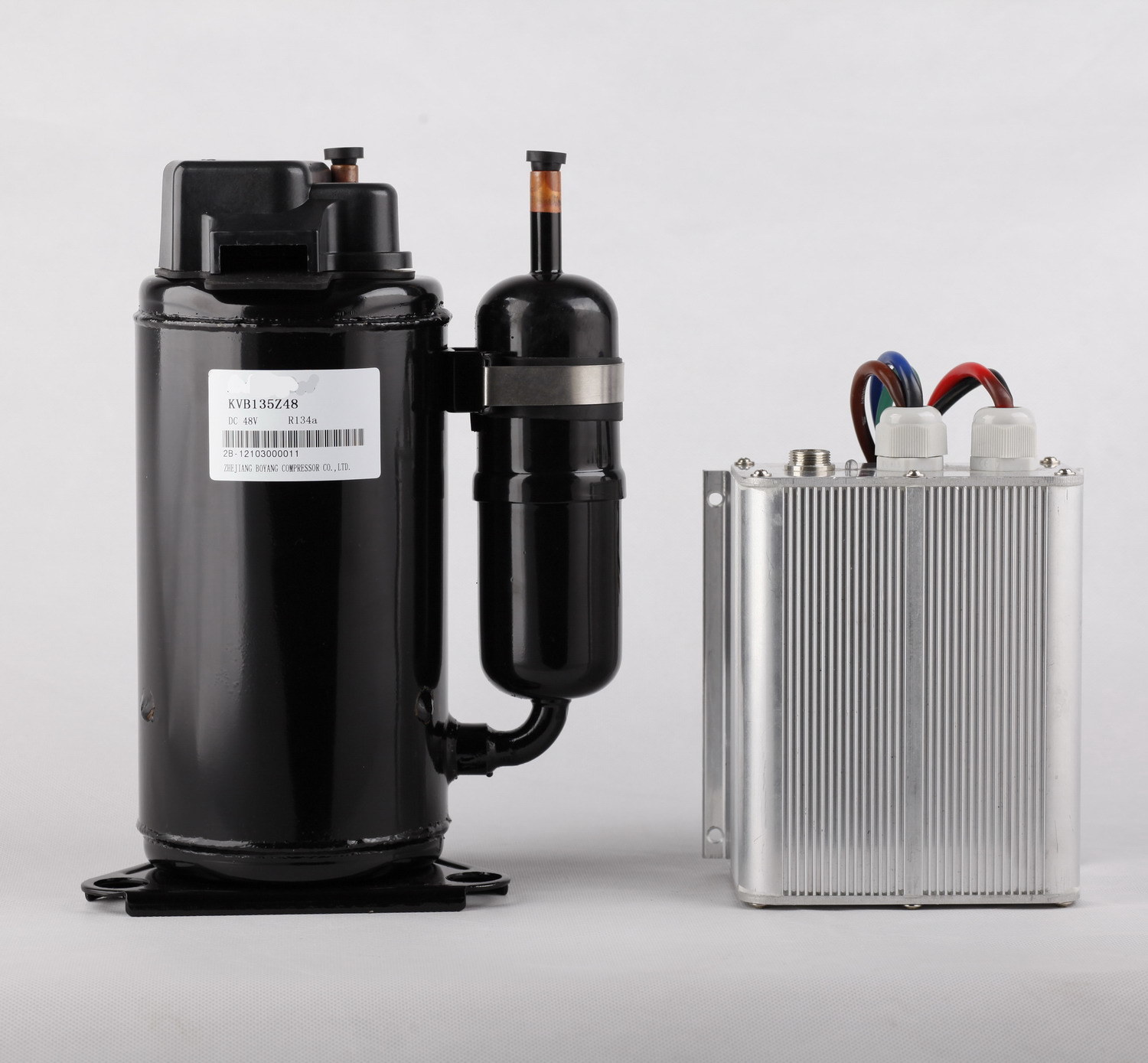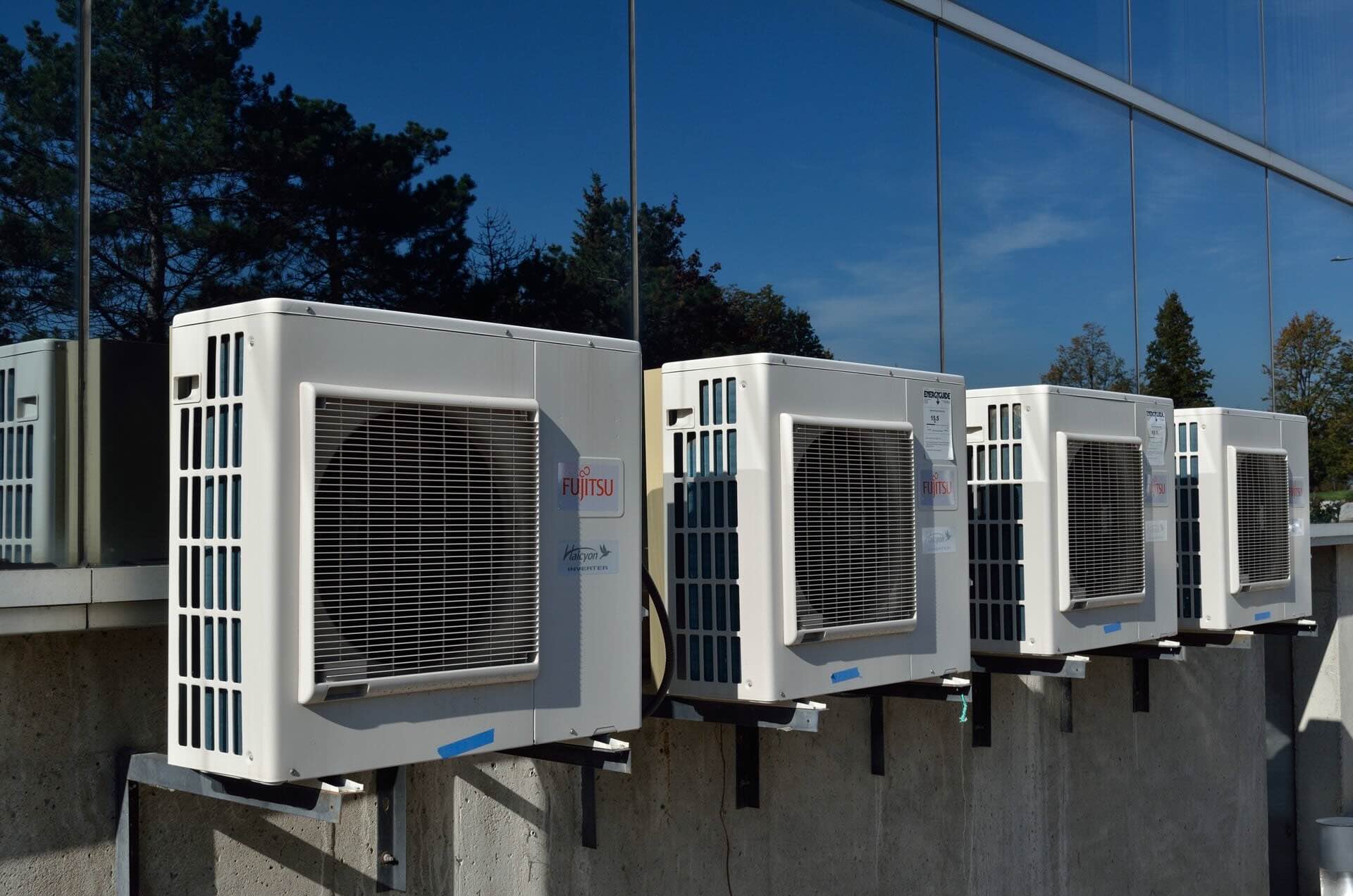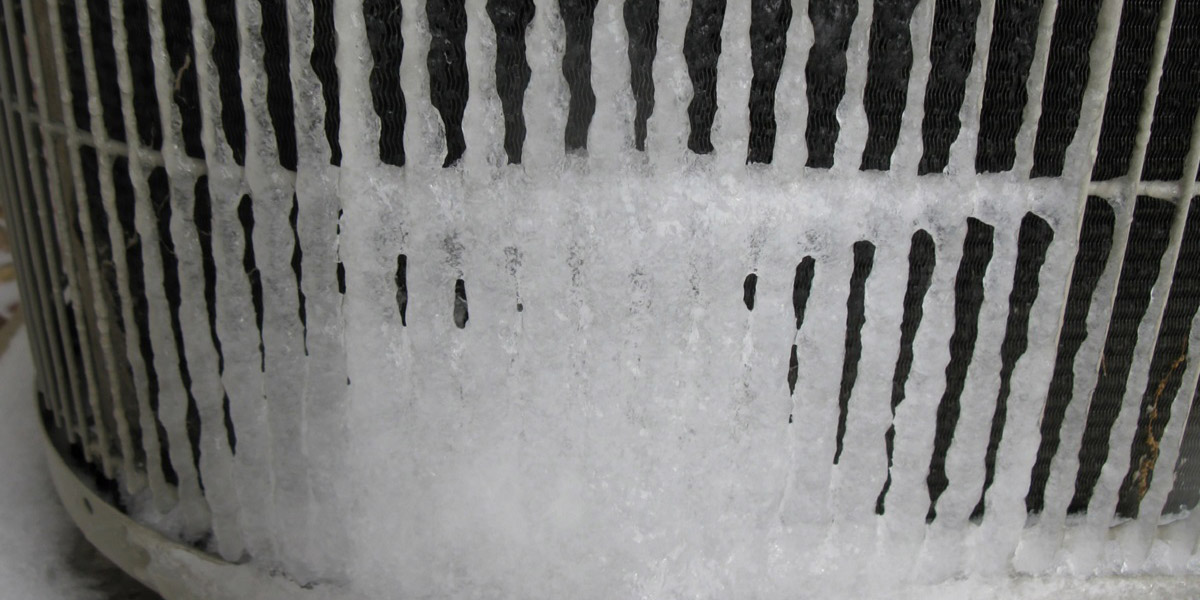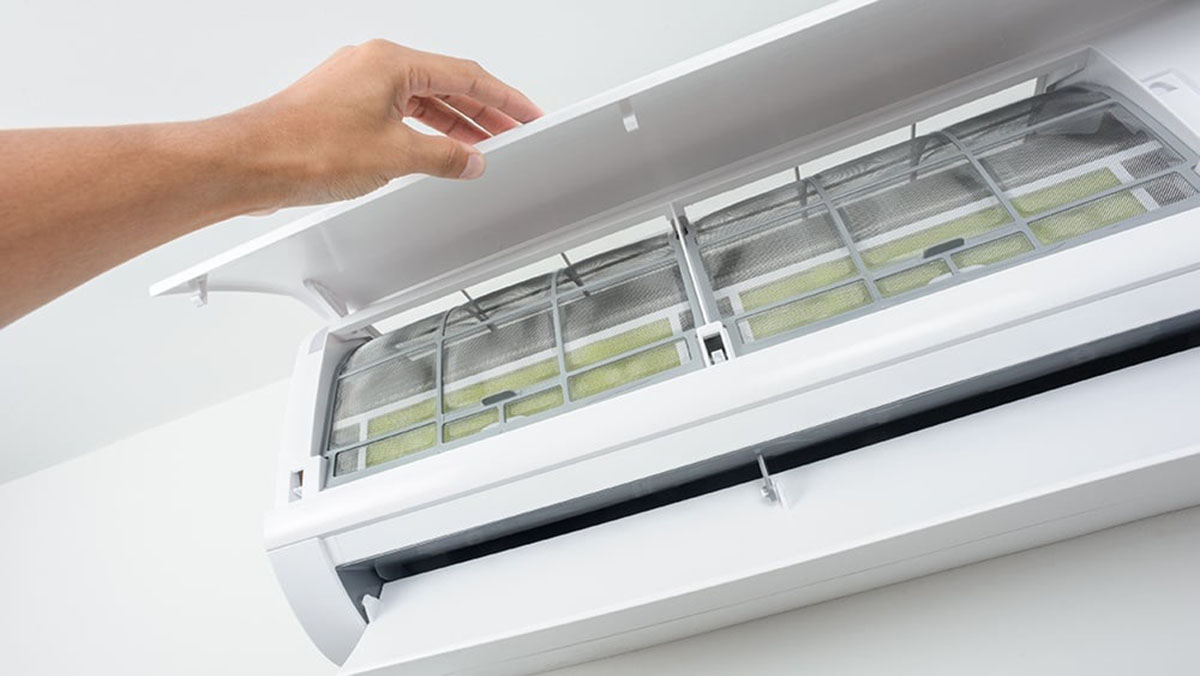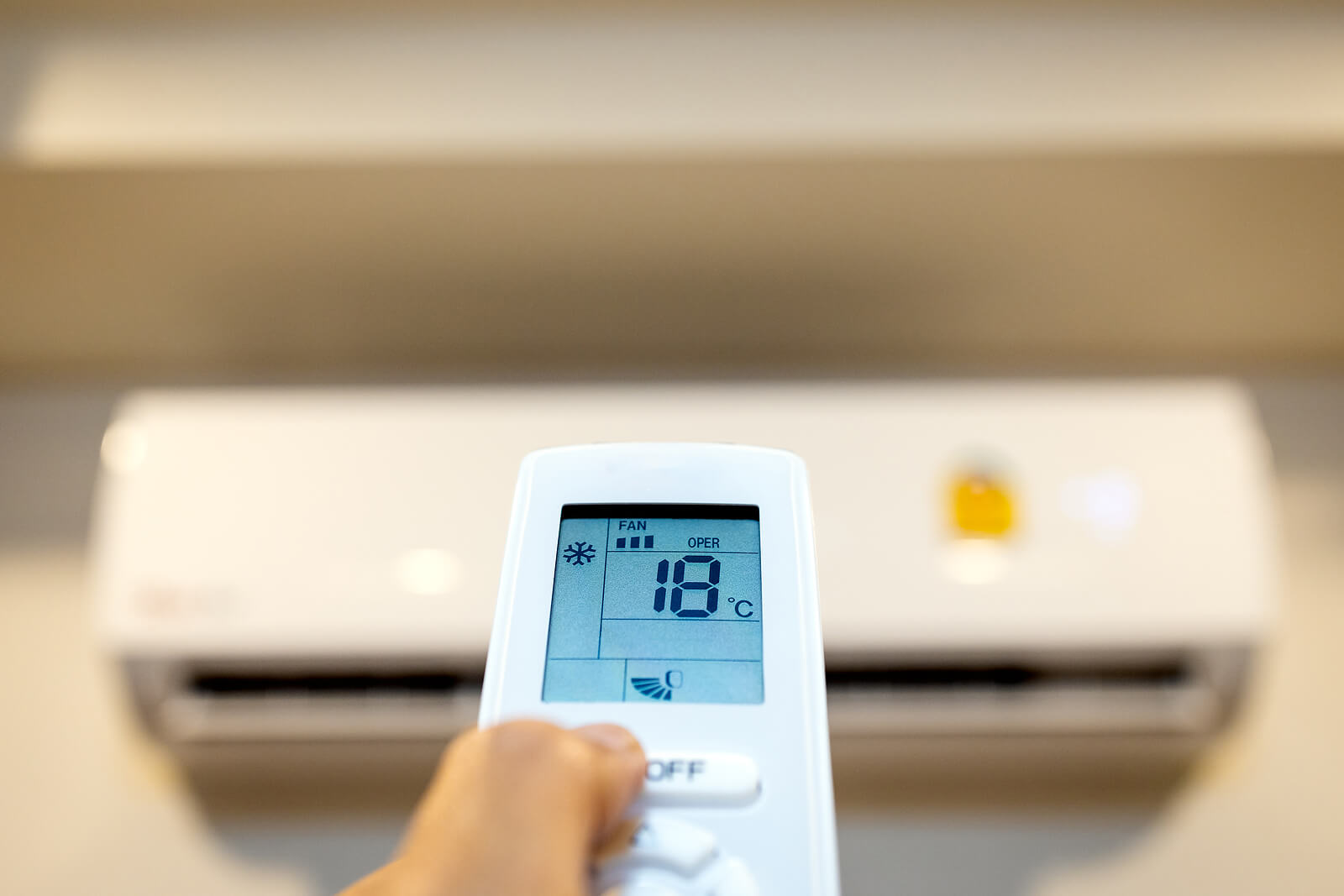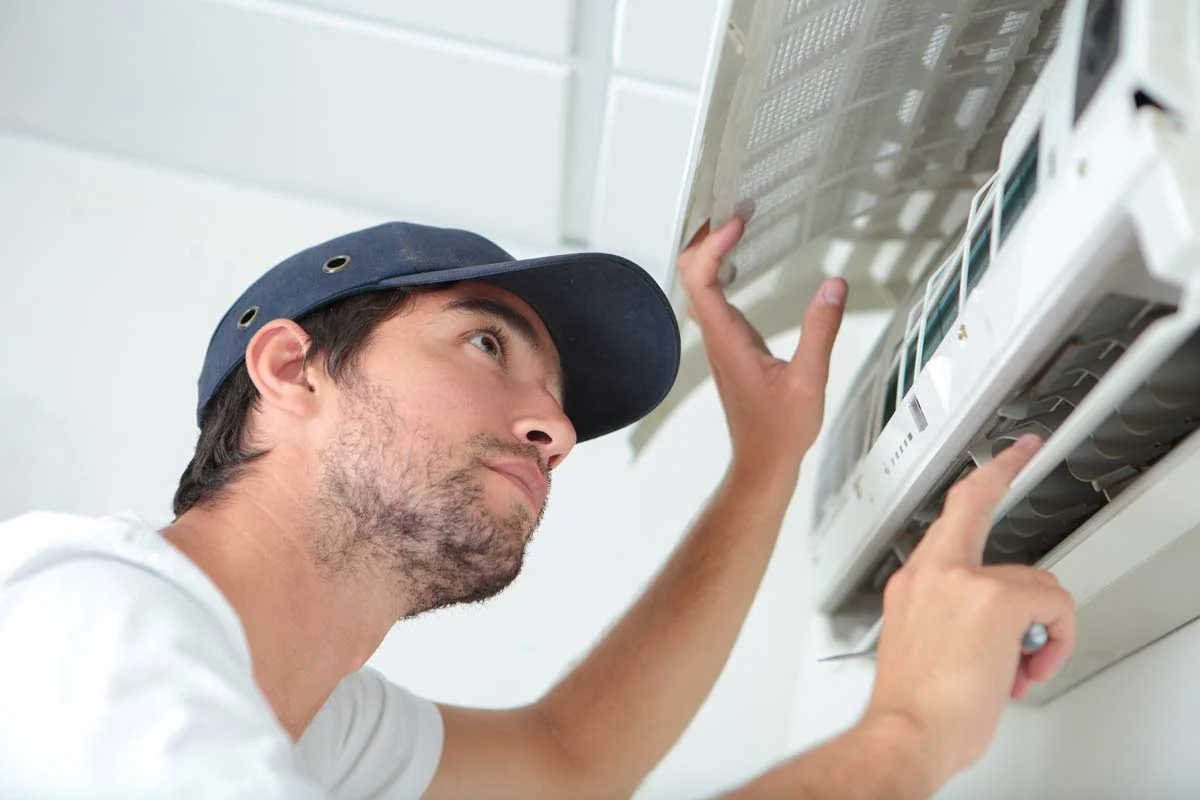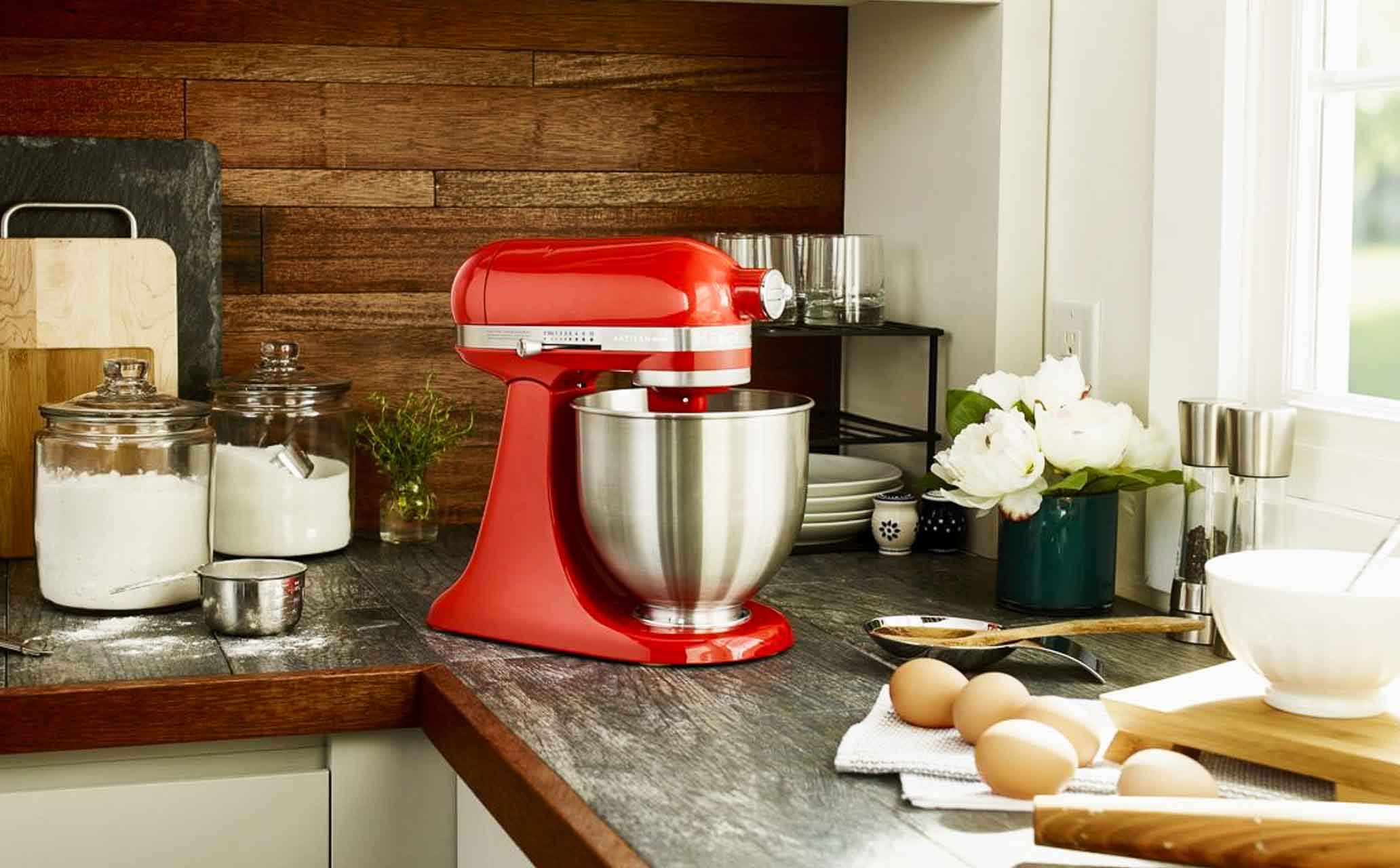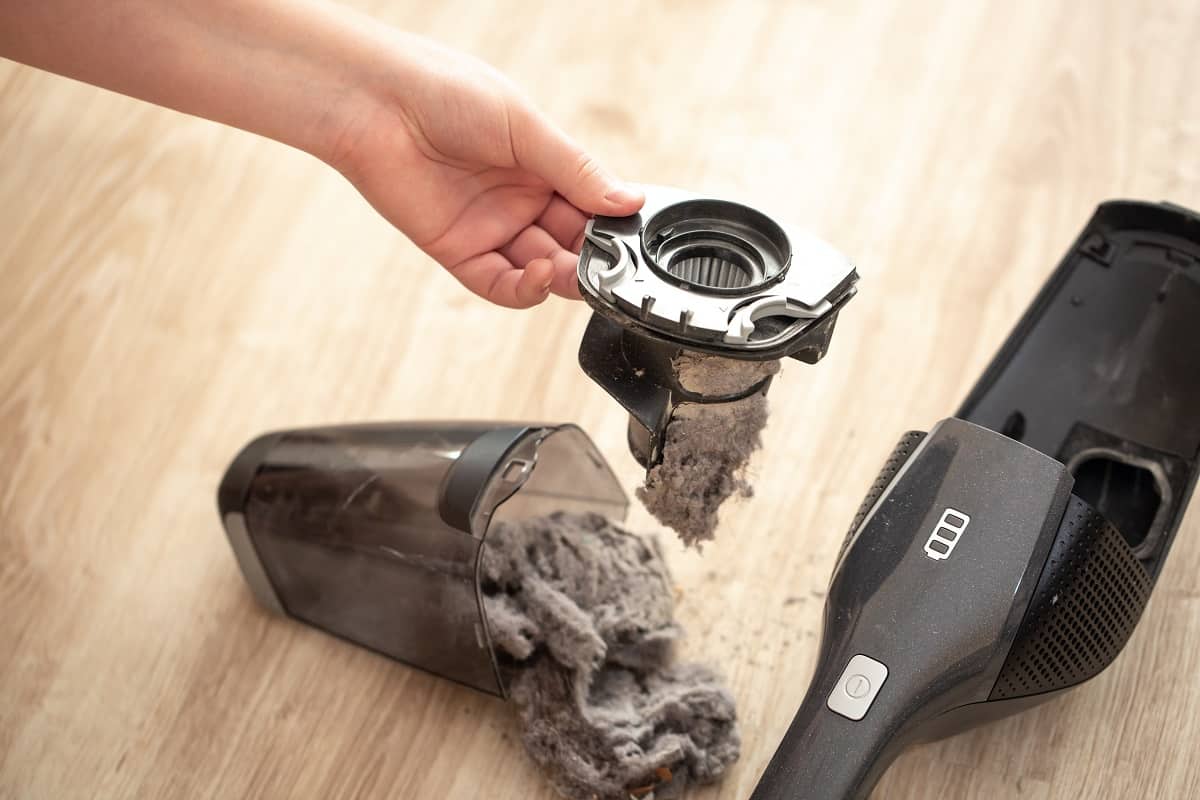Home>Home Maintenance>Why Would My Air Conditioner Stop Working
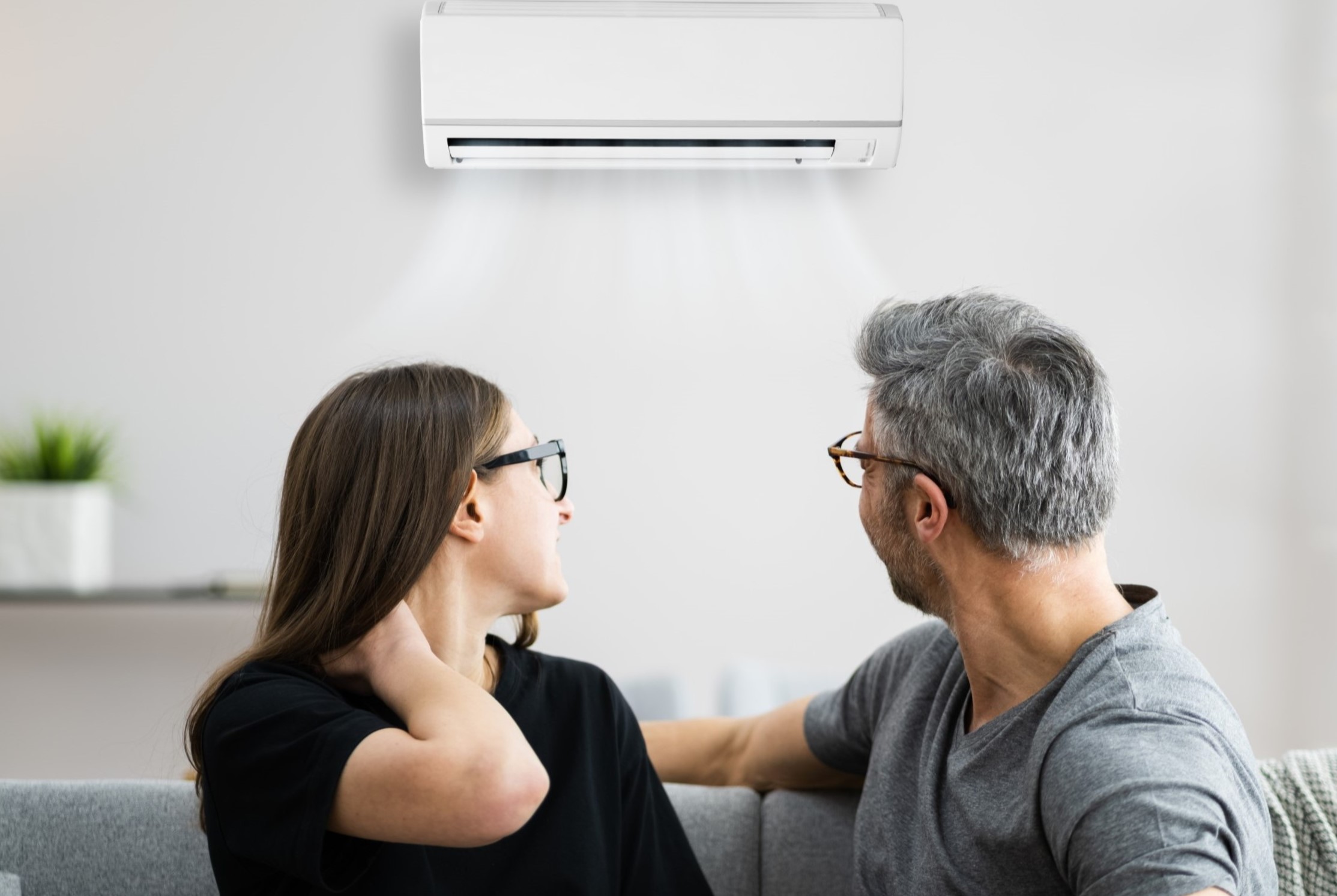

Home Maintenance
Why Would My Air Conditioner Stop Working
Modified: March 7, 2024
Learn why your air conditioner may have stopped working and how to troubleshoot it. Get expert home maintenance tips to keep your AC running smoothly.
(Many of the links in this article redirect to a specific reviewed product. Your purchase of these products through affiliate links helps to generate commission for Storables.com, at no extra cost. Learn more)
Introduction
When the temperature starts to soar, there’s nothing more frustrating than finding out that your air conditioner has suddenly stopped working. As the sweat begins to trickle down your forehead and the heat becomes unbearable, you’re left wondering what could have gone wrong. Well, there can be several reasons why your trusty cooling system has called it quits.
In this article, we will explore the common causes of air conditioner failure and provide you with troubleshooting tips to get your unit back up and running. Whether you have a central air conditioning system or a window unit, understanding why your air conditioner is not working properly can help you diagnose the issue and determine the best course of action to fix it.
Now, let’s dive into the possible reasons why your air conditioner has stopped working and find out how to resolve these problems.
Key Takeaways:
- Regular maintenance and timely troubleshooting can help keep your air conditioner running smoothly. Simple tasks like cleaning filters and clearing debris can prevent common issues and ensure efficient cooling.
- If your air conditioner stops working, check for power issues, thermostat problems, and dirty filters. If troubleshooting doesn’t work, seek professional help to diagnose and repair complex issues.
Common Causes of Air Conditioner Failure
Your air conditioner is a complex system that requires various components to work together seamlessly. When any of these components malfunction, it can lead to a complete breakdown of your cooling system. Here are the common causes of air conditioner failure:
- Power Issues: One of the first things you should check if your air conditioner has suddenly stopped working is the power supply. Ensure that the unit is properly plugged in and that the circuit breaker hasn’t tripped. Sometimes, a power outage or surge can also cause the air conditioner to shut down.
- Thermostat Problems: The thermostat acts as the control center of your air conditioner. If it is not functioning correctly, it may not be sending the right signals to the cooling unit. Make sure the thermostat is set to the desired temperature and is in good working condition.
- Dirty Air Filters: Air filters play a crucial role in maintaining the efficiency of your air conditioner. Over time, these filters can become clogged with dust, dirt, and debris, restricting airflow and reducing the cooling capacity. Regularly clean or replace the air filters to ensure proper airflow and prevent strain on the system.
- Refrigerant Leakage: Refrigerant is responsible for cooling the air in your AC unit. If there is a leak in the refrigerant lines, it can cause a drop in cooling performance and eventually lead to a complete breakdown. A certified technician should be called to determine if there is a refrigerant leak and repair it accordingly.
- Frozen Evaporator Coil: If the airflow over the evaporator coil is restricted, it can cause the coil to freeze. This can be due to a dirty air filter, low refrigerant levels, or a malfunctioning blower motor. When the coil freezes, it prevents the air conditioner from producing cool air.
- Faulty Capacitor or Compressor: The capacitor and compressor are two essential components of an air conditioning system. If either of them malfunctions, your air conditioner may not start or cool the air adequately. A professional technician can diagnose and replace faulty capacitors or compressors.
- Condenser Issues: The condenser unit, located outside, plays a vital role in releasing heat from the refrigerant. Issues with the condenser fan, coils, or debris buildup around the unit can hinder proper heat transfer, resulting in an ineffective cooling system.
- Blocked Air Vents: Obstructed or closed air vents can restrict airflow and disrupt the cooling process. Ensure that all vents are unblocked and open to allow for proper air circulation throughout your home.
- Lack of Maintenance: Regular maintenance, such as cleaning coils, lubricating moving parts, and checking electrical connections, is crucial to keep your air conditioner running smoothly. Neglecting maintenance can lead to a variety of issues and eventually cause your AC unit to fail.
- Age and Wear: Like any mechanical device, air conditioners have a limited lifespan. As your unit ages, it may start to experience more frequent breakdowns and decreased efficiency. Eventually, it may be more cost-effective to replace the unit rather than repair it.
Understanding the common causes of air conditioner failure can help you diagnose the issue and determine if it’s something you can address yourself or if you need to call a professional HVAC technician. In the next section, we will provide troubleshooting tips to help you get your non-functioning air conditioner up and running again.
Power Issues
One of the most common reasons why your air conditioner may stop working is due to power issues. Here are a few things you can check if you suspect a power problem:
- Check the power supply: Ensure that your air conditioner is properly plugged into a working power outlet. Sometimes, the plug can get loose or accidentally unplugged, resulting in no power supply to the unit. Also, check the circuit breaker panel to see if the breaker associated with the air conditioner has tripped. If it has, reset the breaker and see if the unit starts working again.
- Power outages or surges: Power outages or electrical surges can temporarily disrupt the functioning of your air conditioner. If there has been a recent power outage or surge in your area, it’s possible that the unit shut down as a safety measure. Wait a few minutes and then try turning on the air conditioner again.
- Power supply issues: If your air conditioner is not receiving adequate power supply, it may not start or work efficiently. Check the voltage requirements of your unit and make sure it matches the electrical system in your home. If the voltage is too low or too high, you may need to consult an electrician to address the issue.
- Faulty power cord: Inspect the power cord of your air conditioner for any signs of damage or wear. A frayed or damaged cord can cause power irregularities and may need to be replaced. Avoid using extension cords or power strips with your air conditioner as they can also impact its performance.
- Internal wiring issues: In some cases, the issue may be with the internal wiring of the air conditioner. Faulty or loose wiring connections can prevent the unit from receiving power properly. This is a more complex issue that may require the expertise of a professional technician to diagnose and fix.
- Control board problems: The control board is responsible for regulating the operation of the air conditioner. If the control board is faulty, it can disrupt the power supply and prevent the unit from functioning correctly. A qualified technician can inspect and replace the control board if necessary.
If you have checked the power supply and resolved any issues, but your air conditioner is still not working, it’s best to consult a professional HVAC technician. They have the expertise to diagnose and repair more complex power-related issues and ensure that your unit operates efficiently.
Thermostat Problems
A malfunctioning thermostat can cause your air conditioner to stop working or not cool your home properly. Here are a few thermostat-related issues that you may encounter:
- Incorrect temperature settings: Double-check the temperature settings on your thermostat to ensure they are set correctly. If the set temperature is too high, your air conditioner may not kick in. Conversely, if the set temperature is too low, the unit may think that it has already reached the desired temperature and will not turn on. Adjust the temperature settings accordingly and see if the air conditioner starts working.
- Thermostat power: Some thermostats require batteries for power. If the batteries are dead, the thermostat may not function properly, leading to a non-working air conditioner. Replace the batteries and check if the unit comes back to life.
- Calibration issues: Over time, thermostats can go out of calibration, leading to inaccurate temperature readings and improper cooling. If you suspect calibration issues, try recalibrating the thermostat according to the manufacturer’s instructions. This may involve adjusting calibration settings or resetting the thermostat.
- Damaged or malfunctioning thermostat: If all else fails, it’s possible that your thermostat is faulty or damaged. A cracked thermostat or internal component failure can disrupt its functioning and prevent the air conditioner from operating properly. In such cases, it’s best to replace the thermostat with a new one.
- Compatibility issues: If you recently upgraded your air conditioner or thermostat, there may be compatibility issues between the two. Different systems require specific thermostat settings and wiring configurations. Consult the user manuals or contact the manufacturer to ensure proper compatibility and installation.
- Wiring problems: Faulty or loose wiring connections between the thermostat and air conditioning system can also cause issues. Inspect the wiring and ensure all connections are secure and properly connected. If you are unfamiliar with electrical work, it’s recommended to seek professional assistance to avoid any safety risks.
- Smart thermostat connectivity: If you have a smart thermostat, ensure that it is connected to your Wi-Fi network and the corresponding app. Connectivity issues can prevent you from controlling the air conditioner remotely or accessing advanced features. Check the Wi-Fi settings and troubleshoot any connectivity problems.
If you have addressed the thermostat issues and your air conditioner is still not functioning, it’s advisable to seek the expertise of a professional HVAC technician. They can diagnose and repair any underlying thermostat problems or further troubleshoot the system to identify other possible causes.
Dirty Air Filters
Dirty air filters can have a significant impact on the performance of your air conditioner. Over time, air filters can become clogged with dust, dirt, pet dander, and other airborne particles, obstructing the airflow and reducing the cooling capacity of the unit. Here’s why dirty air filters can cause your air conditioner to stop working:
- Restricted airflow: When the air filter is dirty, it restricts the flow of air into the air conditioning system. This puts extra strain on the blower motor as it tries to push air through the clogged filter. The reduced airflow can cause the system to overheat and shut down to prevent further damage.
- Frozen evaporator coil: In addition to restricted airflow, a dirty air filter can lead to a frozen evaporator coil. When the air filter is dirty, it hampers the flow of warm air over the evaporator coil, causing it to become excessively cold. This can result in ice buildup on the coil, preventing it from absorbing heat and cooling the air. When the evaporator coil freezes, the air conditioner may shut down to prevent damage to the compressor.
- Poor indoor air quality: Dirty air filters can’t effectively filter out pollutants, leading to poor indoor air quality. This can be particularly problematic for individuals with allergies, asthma, or respiratory issues. Regularly cleaning or replacing air filters not only improves the performance of your air conditioner but also ensures cleaner and healthier air in your home.
- Energy inefficiency: A clogged air filter forces the air conditioner to work harder to cool your home, leading to increased energy consumption. This can result in higher electricity bills and unnecessary strain on the system. By regularly cleaning or replacing your air filters, you can improve energy efficiency and save money in the long run.
- System damage: If a dirty air filter is left unaddressed for an extended period, it can lead to more significant problems with your air conditioning system. The restricted airflow can cause parts of the system to overheat, leading to potential damage to the blower motor, compressor, or other components. Regular maintenance, including filter cleaning or replacement, can help prevent such issues.
To prevent air conditioning issues caused by dirty air filters, it is recommended to clean or replace them regularly. The frequency of filter maintenance depends on various factors, such as the type of filter, the presence of pets, and the environmental conditions. As a general guideline, disposable filters should be replaced every 1-3 months, while reusable filters should be cleaned according to the manufacturer’s instructions.
Regularly checking and cleaning air filters not only improves the functionality of your air conditioner but also extends its lifespan. It is a simple yet effective maintenance task that can help ensure the smooth operation of your cooling system and help you stay cool and comfortable during the warmer months.
Read more: Why Would Ceiling Fan Stop Working
Refrigerant Leakage
Refrigerant is the substance responsible for cooling the air in your air conditioner. It absorbs heat from the indoor air, cools it down, and then releases it outside. When there is a refrigerant leakage, it can have a significant impact on the performance of your air conditioner and cause it to stop working. Here’s why refrigerant leakage is a common issue:
- Reduced cooling capacity: A refrigerant leakage means that there is less refrigerant available to cool the air. This leads to reduced cooling capacity, making your air conditioner struggle to achieve the desired temperature. You may notice that the air blowing from the vents is not as cold as it used to be or that the cooling is inconsistent.
- Ice buildup: When there is a refrigerant leakage, it can cause the evaporator coil to freeze. As the refrigerant level drops, the coil becomes excessively cold, leading to ice buildup. This ice restricts the airflow and hampers the cooling process. Eventually, the air conditioner may shut down to prevent further damage to the system.
- Compressor damage: The refrigerant plays a crucial role in the operation of the compressor, which is responsible for circulating the refrigerant and maintaining the cooling process. When there is a refrigerant leakage, the compressor may run without the necessary lubrication, leading to increased wear and tear. This can result in compressor damage, causing the air conditioner to fail completely.
- Inefficient performance: A refrigerant leakage causes your air conditioner to work harder to cool your home. This not only leads to reduced cooling but also increases energy consumption. As the system struggles to compensate for the refrigerant loss, it becomes inefficient, leading to higher utility bills.
- Health and environmental concerns: Refrigerant leakage poses health and environmental risks. Many refrigerants used in air conditioners contain chemicals that are harmful to human health and contribute to ozone depletion. If you suspect a refrigerant leakage, it’s important to address it promptly to protect your health and minimize the environmental impact.
If you suspect a refrigerant leakage in your air conditioner, it’s crucial to contact a professional HVAC technician as soon as possible. They have the expertise to identify and repair the leakage, as well as add the appropriate amount of refrigerant to the system. Refrigerant leak repairs should never be attempted as a DIY project, as handling refrigerants requires specific certifications and equipment to ensure safety and compliance with environmental regulations.
Regular maintenance, including routine inspections and refrigerant checks, can help detect and address refrigerant leakage early on. Additionally, keeping your air conditioner clean and ensuring proper airflow can help prevent refrigerant leaks caused by debris buildup and system strain. By addressing refrigerant issues promptly, you can maintain the efficiency and longevity of your air conditioning system.
Frozen Evaporator Coil
If your air conditioner suddenly stops working or is not cooling your home effectively, a frozen evaporator coil may be the culprit. The evaporator coil is responsible for absorbing heat from the indoor air and cooling it down. When the coil becomes frozen, it prevents the air conditioner from functioning properly. Here’s why a frozen evaporator coil can cause your air conditioner to stop working:
- Restricted airflow: When the evaporator coil freezes, it creates a barrier of ice that restricts the flow of air over the coil. As a result, the airflow becomes limited, and the cooling process is hampered. This leads to reduced air circulation and inadequate cooling throughout your home.
- Dirty air filters: One common cause of a frozen evaporator coil is dirty air filters. When the air filters are clogged with dust, dirt, and other debris, it restricts the airflow across the coil. The limited airflow causes the coil to become excessively cold and eventually freeze.
- Low refrigerant levels: Low refrigerant levels can also contribute to a frozen evaporator coil. Insufficient refrigerant in the system can lead to a drop in pressure, causing the coil temperature to plummet. As a result, condensation on the coil freezes, leading to ice buildup.
- Mechanical issues: Mechanical problems, such as a malfunctioning blower motor or a faulty expansion valve, can disrupt the balance of the cooling system. When these components fail to regulate the temperature and pressure properly, it can result in an over-cooling of the evaporator coil, leading to freezing.
- Clogged condensate drain line: The condensate drain line carries away the moisture that forms on the evaporator coil. If the drain line becomes clogged with debris or algae, the water cannot drain properly, resulting in excess moisture on the coil. This moisture can freeze, causing the coil to become frozen.
If you suspect a frozen evaporator coil in your air conditioner, here are some steps you can take to resolve the issue:
- Turn off the air conditioner: It’s important to turn off the air conditioner at the thermostat once you notice a frozen evaporator coil. Continuing to run the system can lead to further damage.
- Check and replace the air filters: Inspect the air filters and replace them if they are dirty or clogged. Clean filters allow for proper airflow and can help prevent the coil from freezing in the future.
- Thaw the evaporator coil: Allow the evaporator coil to thaw completely before attempting any further troubleshooting. This may take several hours or even overnight. You can accelerate the thawing process by placing a fan near the unit or using a hairdryer on low heat.
- Inspect the condensate drain line: Check the condensate drain line for any clogs and remove them if present. Cleaning the drain line ensures proper drainage and prevents water from accumulating on the coil.
If these steps do not resolve the issue, or if you notice a recurring problem with a frozen evaporator coil, it’s best to contact a professional HVAC technician. They can diagnose and address any underlying mechanical issues or refrigerant leaks that may be contributing to the problem. Additionally, regular maintenance, including cleaning the coils and checking the refrigerant levels, can help prevent the occurrence of a frozen evaporator coil.
Check the thermostat to make sure it’s set to cool and the temperature is lower than the current room temperature. Also, check the air filter and clean or replace it if it’s dirty. If these don’t work, call a professional for help.
Faulty Capacitor or Compressor
A faulty capacitor or compressor can cause your air conditioner to stop working or not cool your home adequately. The capacitor and compressor are both crucial components of the cooling system, and when they malfunction, it can lead to a breakdown. Here’s how these components can impact the performance of your air conditioner:
- Faulty Capacitor: The capacitor is responsible for providing the initial torque to start the compressor and blower motor. If the capacitor fails, it can prevent the motor from starting or running at full capacity. This can result in your air conditioner not turning on or not producing enough cool air to adequately cool your home.
- Faulty Compressor: The compressor is often referred to as the “heart” of the air conditioner, as it circulates the refrigerant and facilitates the cooling process. A faulty compressor can lead to a complete system failure. It may fail to compress the refrigerant properly, causing a disruption in the cooling cycle and preventing the air conditioner from functioning correctly.
- Hard Starting: If you notice that your air conditioner struggles to start or it makes a loud banging noise when it turns on, it could be due to a faulty capacitor. The capacitor provides an extra burst of energy to initiate the compressor and fan motor. When the capacitor is faulty, the compressor may experience “hard starting,” which puts strain on the system and can potentially cause it to shut down.
- Frequent cycling: A malfunctioning capacitor or compressor can cause the air conditioner to cycle on and off frequently. This can lead to inconsistent cooling and increased energy consumption. If you notice that your air conditioner is frequently turning on and off, it’s advisable to have it inspected by a professional technician.
- Warm air blowing: A faulty compressor may result in warm air blowing from the air conditioner vents instead of cool air. This is because the compressor is not properly compressing the refrigerant, compromising the cooling process. If you experience warm air instead of cool air, it’s a sign that your compressor may need to be repaired or replaced.
If you suspect a faulty capacitor or compressor in your air conditioner, it’s important to consult a professional HVAC technician. They have the expertise to diagnose the issue and perform the necessary repairs or replacements. Attempting to fix or replace these components without proper knowledge and experience can be dangerous and may cause further damage to the system.
Regular maintenance, including capacitor and compressor checks, can help identify potential issues early on and prevent significant system failures. Additionally, keeping your air conditioner clean, ensuring proper airflow, and avoiding power surges can help prolong the lifespan of these components and improve the overall performance of your cooling system.
Condenser Issues
The condenser is an essential component of your air conditioning system that is located outside your home. It plays a critical role in releasing heat from the refrigerant, allowing the air conditioner to cool your home effectively. When there are issues with the condenser, it can cause your air conditioner to stop working or not cool your home adequately. Here are some common condenser issues and their impact:
- Blocked condenser unit: The condenser unit is exposed to the elements and can accumulate dirt, leaves, debris, and even mold. If the condenser becomes blocked, it hinders proper air circulation and heat dissipation. This can result in reduced cooling capacity and may cause the air conditioner to overheat and shut down.
- Condenser fan problems: The condenser fan is responsible for circulating air over the condenser coil, facilitating heat transfer. If the condenser fan motor is malfunctioning or if the fan blades are damaged or dirty, it can lead to inadequate airflow and affect the cooling efficiency. This can cause your air conditioner to work harder and may result in system failure.
- Coil damage or corrosion: Over time, the condenser coil can become damaged or corroded due to exposure to weather elements and contaminants. This can impact the heat exchange process and compromise the performance of your air conditioner. If the coil is damaged or corroded, it may need to be repaired or replaced by a professional technician.
- Refrigerant leaks: The condenser contains refrigerant that absorbs heat from the indoor air and releases it outside. If there is a refrigerant leak in the condenser, it can lead to a drop in cooling capacity and inefficient operation. If you suspect a refrigerant leak, it’s essential to contact a professional HVAC technician to diagnose and resolve the issue.
- Electrical component failure: The condenser unit contains various electrical components, such as capacitors, contactors, and control boards, that are essential for its proper functioning. If any of these components fail, it can affect the operation of the condenser and the overall cooling system. An HVAC technician can diagnose and repair or replace faulty electrical components.
If you suspect condenser issues with your air conditioner, there are a few steps you can take to address the problem:
- Ensure the condenser unit is clean: Regularly clean the exterior of the condenser unit to remove any dirt, debris, or vegetation that could be blocking airflow. Use a soft brush or a vacuum cleaner to carefully clean the fins and coils.
- Check the condenser fan: Ensure that the condenser fan is spinning smoothly and that the fan blades are clean and undamaged. If there are any issues with the condenser fan motor or blades, it’s best to have a professional technician inspect and repair them.
- Inspect for refrigerant leaks: Look for any signs of refrigerant leakage around the condenser unit, such as oily residue or frost accumulation. If you suspect a refrigerant leak, contact an HVAC technician to diagnose and fix the issue.
- Professional maintenance: Schedule regular maintenance visits with an HVAC technician who can thoroughly inspect and clean the condenser unit, check for any potential issues, and perform any necessary repairs or maintenance tasks.
It’s important to remember that troubleshooting and repairing condenser issues can be complex and potentially hazardous. It’s best to rely on the expertise of a qualified HVAC technician to diagnose and resolve condenser-related problems to ensure the safe and efficient operation of your air conditioning system.
Read more: Why Is My RV Air Conditioner Not Working
Blocked Air Vents
Blocked air vents can significantly impact the performance of your air conditioning system and cause it to stop working efficiently. Air vents are responsible for distributing cooled air throughout your home, and when they are obstructed or blocked, it can lead to various issues. Here’s how blocked air vents can affect your air conditioner:
- Reduced airflow: When air vents are blocked, the airflow is restricted, making it difficult for cool air to circulate effectively. This can result in uneven cooling or inadequate cooling in certain areas of your home. Your air conditioner may struggle to reach the desired temperature, causing it to run continuously or not turn on at all.
- Overworked system: Blocked air vents force your air conditioner to work harder to compensate for the restricted airflow. This places additional strain on the system, leading to increased energy consumption, overheating, and potential system breakdowns. It can also shorten the lifespan of your air conditioning unit.
- Frozen evaporator coil: When airflow is obstructed, it can cause the evaporator coil to become too cold and freeze. The restricted airflow prevents warm air from reaching the coil, leading to ice buildup. A frozen evaporator coil hinders the cooling process and may cause your air conditioner to shut down.
- Increased humidity: Proper airflow helps remove excess humidity from your home. When air vents are blocked, the air conditioner cannot effectively dehumidify the indoor air, leaving your home feeling damp and uncomfortable. Excess humidity can also promote the growth of mold and mildew.
- Dust and debris accumulation: Over time, blocked air vents can lead to the accumulation of dust, dirt, and debris in the ductwork and air conditioner components. This can negatively impact the efficiency of your system and compromise indoor air quality. It may also require more frequent cleaning and maintenance.
If you suspect blocked air vents in your home, here are some steps you can take to address the issue:
- Inspect and clear the air vents: Check all the air vents in your home to ensure they are not blocked by furniture, curtains, rugs, or any other obstructions. Rearrange furniture or remove any items that are blocking the vents to allow for proper airflow.
- Clean or replace air filters: A clogged or dirty air filter can contribute to blocked air vents. Check the air filters and clean or replace them as needed. Clean filters ensure optimal airflow and help prevent dust and debris from accumulating in the ductwork.
- Clear the ductwork: If you suspect that the ductwork is obstructed, you may need to hire a professional duct cleaning service. They can remove any blockages or debris in the ducts, improving airflow and preventing future issues.
- Ensure open registers: Make sure all the registers are fully open and not partially closed. Sometimes, homeowners may unintentionally close registers in certain rooms, restricting airflow. Opening the registers can help improve overall airflow throughout your home.
Regular maintenance, including keeping air vents clear and cleaning or replacing air filters, can help prevent blocked air vents and maintain proper airflow in your air conditioning system. If you continue to experience issues with blocked air vents or your air conditioner not cooling your home effectively, it’s advisable to consult a professional HVAC technician who can diagnose and address any underlying issues.
Lack of MaintenanceLack of regular maintenance is one of the most common reasons why air conditioners stop working or fail to cool your home adequately. Neglecting routine maintenance tasks can lead to a variety of issues that affect the performance and lifespan of your cooling system. Here’s why lack of maintenance can cause your air conditioner to malfunction:
- Dirty components: Over time, dirt, dust, and debris can accumulate on the components of your air conditioner, such as the evaporator coil, condenser coil, and blower. This buildup restricts airflow, reduces cooling capacity, and hampers the overall efficiency of the system. Regular cleaning of these components helps maintain optimum performance.
- Clogged condensate drain: The condensate drain is responsible for removing excess moisture from your air conditioner. If the drain becomes clogged with dirt, algae, or debris, it can cause water to back up and potentially damage the system. Regular maintenance includes clearing the condensate drain to prevent this issue.
- Worn-out parts: Regular maintenance allows technicians to inspect and identify any worn-out or faulty parts that may need to be replaced. Ignoring the replacement of worn-out parts can result in decreased efficiency, reduced cooling capacity, and even system failure.
- Refrigerant leaks: Lack of maintenance can also lead to refrigerant leaks. Low refrigerant levels can put additional strain on the system, leading to reduced cooling capacity and potential damage to the compressor. Regular maintenance allows technicians to detect and repair refrigerant leaks before they cause significant issues.
- Poor electrical connections: Over time, electrical connections within your air conditioner may become loose or worn out. This can cause a variety of issues, from intermittent operation to complete system failure. Regular maintenance involves checking and tightening electrical connections to ensure proper functioning.
To avoid the negative consequences of lacking maintenance, it’s important to prioritize regular maintenance for your air conditioning system. Here are some maintenance tasks that should be performed on a regular basis:
- Replace or clean air filters: Clean or replace air filters every 1-3 months, or according to manufacturer’s recommendations, to ensure proper airflow and prevent debris buildup.
- Clean condenser and evaporator coils: Regularly clean the condenser and evaporator coils to remove dirt, dust, and debris that can hinder their performance.
- Clear debris around the condenser unit: Remove any vegetation, debris, or obstructions around the outdoor condenser unit to ensure proper airflow and heat dissipation.
- Inspect and clean the condensate drain line: Regularly check the condensate drain line and clear any clogs or buildup to prevent water damage and maintain efficient moisture removal.
- Check and tighten electrical connections: Inspect electrical connections and tighten any loose connections to ensure proper operation.
- Schedule professional maintenance: Consider scheduling annual or bi-annual professional maintenance visits with an HVAC technician who can perform a comprehensive inspection, cleaning, and tune-up of your air conditioning system.
Regular maintenance not only helps prevent system breakdowns and inefficient operation but also extends the lifespan of your air conditioner. By keeping up with these maintenance tasks, you can enjoy reliable cooling performance and potentially save on energy costs in the long run.
Age and Wear
As with any mechanical system, air conditioners have a limited lifespan. Over time, the components of your air conditioner can wear out, leading to decreased efficiency, frequent breakdowns, and eventually, system failure. Here’s how age and wear can cause your air conditioner to stop working:
- Decreased efficiency: As your air conditioner ages, its efficiency gradually declines. Older units may struggle to cool your home as effectively as before, requiring longer run times and higher energy consumption. This can result in higher utility bills and an increasingly uncomfortable indoor environment.
- Component deterioration: Over the years, the various components of your air conditioner, such as the compressor, fan motor, and condenser coils, can undergo wear and tear. This can lead to decreased performance, diminished airflow, and even system malfunctions. As these components deteriorate, your air conditioner may stop working altogether.
- Refrigerant problems: Older air conditioning systems often use refrigerants that are being phased out due to environmental concerns. As a result, finding replacements for leaks or recharging the system can become more challenging and expensive. This can lead to issues with maintaining proper refrigerant levels, which can impact the cooling capacity of the unit.
- Obsolete technology: Advancements in technology have made newer air conditioning systems more energy-efficient and technologically advanced. Older units may lack these features, making them less efficient and more prone to breakdowns. Additionally, outdated parts may be more difficult to find and replace.
- Increased likelihood of breakdowns: As air conditioners age, the likelihood of experiencing frequent breakdowns or malfunctions increases. This can be due to worn-out components, increased stress on the system, or a lack of proper maintenance. These breakdowns can lead to costly repairs and inconvenience, especially during hot summer months.
While regular maintenance can help prolong the life of your air conditioner, there comes a point when it becomes more cost-effective to replace the unit rather than invest in repeated repairs. Here are some signs that your air conditioner may be reaching the end of its lifespan:
- Frequent breakdowns or malfunctions
- Inefficient cooling and increased energy consumption
- Age of the unit (typically around 10-15 years)
- Cooling unevenness or inadequate airflow
- Incompatibility with newer technologies or refrigerants
If your air conditioner is exhibiting these signs and is approaching its expected lifespan, it may be time to consider replacing it with a more energy-efficient and reliable unit. Consult with a professional HVAC technician to assess your current system and recommend the best course of action.
Remember, even if your air conditioner is still functional, upgrading to a newer, more efficient model can offer significant benefits in terms of comfort, energy savings, and reduced environmental impact.
Troubleshooting Tips for a Non-Functioning Air Conditioner
When your air conditioner is not functioning as it should, it can be frustrating and uncomfortable, especially during hot summer months. Before calling a professional HVAC technician, there are a few troubleshooting steps you can take to potentially identify and resolve the issue. Here are some helpful tips to get your non-functioning air conditioner back up and running:
- Check the thermostat: Ensure that the thermostat is set to the desired temperature and is in the cooling mode. If the thermostat is battery-powered, replace the batteries and confirm that it is receiving power. Additionally, make sure the thermostat is not exposed to direct sunlight or other heat sources that could affect its accuracy.
- Inspect the power supply: Check to see if the air conditioner is receiving power. Verify that it is properly plugged into a working electrical outlet and that the circuit breaker associated with the unit has not tripped. If the breaker has tripped, reset it and check if the air conditioner turns on.
- Clean or replace air filters: Dirty air filters can restrict airflow and hinder the cooling process. Remove and inspect the air filters, cleaning or replacing them if necessary. Clean filters allow for better air circulation and can help improve the overall performance of your air conditioner.
- Clear debris around the outdoor unit: Ensure that the outdoor condenser unit is free from any debris, vegetation, or obstructions. Clear away leaves, dirt, and other debris that may be hindering proper airflow and heat dissipation.
- Inspect the condensate drain line: Check the condensate drain line to ensure that it is not clogged or blocked. Use a wet/dry vacuum or a pipe cleaner to clear any obstructions. A clogged condensate drain line can cause water to back up and potentially shut down the air conditioner.
- Check for refrigerant leaks: Look for any signs of refrigerant leakage, such as oil stains or frost accumulation on the refrigerant lines or coils. If you suspect a refrigerant leak, it’s crucial to contact a professional HVAC technician to diagnose and repair the issue.
- Inspect the fan: Check if the fan associated with your air conditioner is turning properly and producing airflow. A malfunctioning fan motor or blade can prevent proper air circulation. If the fan is not working, it may need to be repaired or replaced.
- Reset the system: Sometimes, a simple system reset can resolve minor issues. Turn off the air conditioner at the thermostat and the circuit breaker. Wait a few minutes, then turn the system back on. This can reset the internal components and potentially restore proper functionality.
If these troubleshooting steps do not resolve the issue or if you are unsure of how to proceed, it’s best to contact a professional HVAC technician. They have the expertise and tools to diagnose and repair more complex problems.
Remember that safety is a priority when troubleshooting your air conditioner. If you are uncomfortable or unsure about performing any of these steps, it’s always best to seek professional assistance to avoid further damage or potential hazards.
Regular maintenance, such as cleaning or replacing air filters, scheduling professional inspections, and keeping the area around the outdoor unit clear, can help prevent future issues and keep your air conditioner running smoothly.
Read more: Why Is My Air Conditioner Fan Not Working
Conclusion
When your air conditioner stops working or fails to cool your home adequately, it can be a source of frustration and discomfort. Understanding the common causes of air conditioner failure and troubleshooting steps can help you identify and potentially resolve the issues before seeking professional help. Power issues, thermostat problems, dirty air filters, refrigerant leakage, frozen evaporator coils, faulty capacitors or compressors, condenser issues, blocked air vents, lack of maintenance, and age and wear are among the common culprits that can affect the performance and functionality of your air conditioner.
By regularly maintaining your air conditioning system and addressing any problems promptly, you can extend the lifespan of your unit and ensure efficient cooling. Simple maintenance tasks such as cleaning or replacing air filters, clearing debris around the condenser unit, checking and cleaning the condensate drain line, and scheduling professional maintenance visits can go a long way in preventing issues and maximizing the performance of your air conditioner.
However, it’s important to recognize when troubleshooting steps alone won’t suffice and when it’s time to call in a professional HVAC technician. Complex issues such as refrigerant leaks, compressor or capacitor failures, or electrical problems require professional expertise to diagnose and repair. Attempting to fix these issues without the necessary knowledge and tools can lead to further damage or safety hazards.
Ultimately, if your air conditioner is aging, experiencing frequent breakdowns, or showing signs of inefficiency, it may be time to consider replacing it with a newer, more energy-efficient unit. Upgrading your air conditioner can not only provide better cooling performance but also lead to energy savings and improved comfort.
In conclusion, regular maintenance, timely troubleshooting of common problems, and knowing when to seek professional assistance are key to keeping your air conditioner in optimal working condition. By taking proper care of your cooling system, you can enjoy a comfortable and cool indoor environment, even during the hottest days of the year.
Frequently Asked Questions about Why Would My Air Conditioner Stop Working
Was this page helpful?
At Storables.com, we guarantee accurate and reliable information. Our content, validated by Expert Board Contributors, is crafted following stringent Editorial Policies. We're committed to providing you with well-researched, expert-backed insights for all your informational needs.
